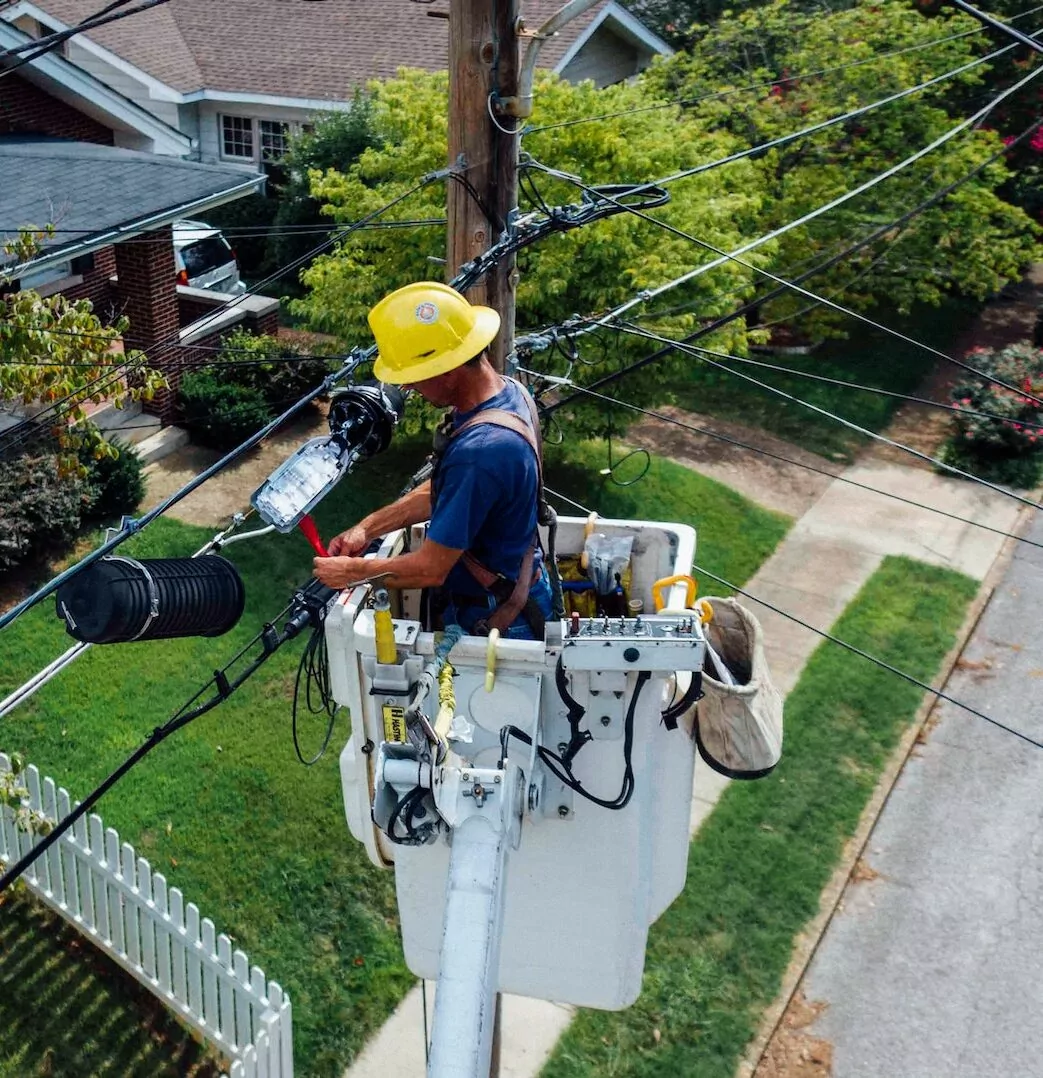In Texas, the sprawling farms and cattle ranches need electricians to function. The oil and gas business that still dominates in Texas also needs electricians to maintain extraction equipment. And as the Texas Triangle booms economically, commercial and residential construction will continue to demand more electricians.
Nationally, demand for electricians will only grow in the next decade as the electrical grid retools to accommodate renewable energy. Off-grid power banks for homes and businesses and the growing prevalence of electric cars charging stations will drive demand as well.

Master electrician licenses in Texas are as difficult to obtain as in more heavily regulated states like California, but the electrical code in Texas has some exemptions -- including for oil and gas work, agriculture, and public agencies like school districts. If you meet the criteria for a license exemption in Texas, you can more easily work without a license or as a trainee, provided there is a master electrician overseeing your work.
How Much Do Electricians Make in Texas?
Wages, in general, are going up in the so-called Texas Triangle, the booming metro areas of Dallas, Austin and Houston that lie in a rough triangle on the map.
Electricians in these urban areas of Texas average $55,000 per year ($26.44/hour wage). In Dallas-Ft. Worth to $57,000 per year ( $27.40/hour). In Austin to $60,000 per year ($28.85/hour). In Houston, numbers provided according to SkillsetGroup's 2023 Salary Guides.
Lower salaries are in the low $50,000 range, while master electricians at the top of their careers can make $66,000 ($31.73/ hour) and higher.
Be careful where you're looking for work in Texas, however. In Texas and the rest of the U.S. South, wages for nearly all positions drop drastically as you leave urban centers.
Starting wages in urban Texas for an electrician just certified with no experience outside their apprenticeship are around $39,500 per year ($19/ per hour). Wages can fall as low as $14 per hour in the countryside.
Use SkillsetGroup's 2023 Salary Guides to find out how much you can make as an electrician and other professions in these Texas cities:
How Long Does It Take to Become an Electrician in Texas?
The Texas Department of Licensing and Regulation issues electrician licenses. The state gives three different certifications for electrical specialties. Texas only issues licenses once the required education and apprenticeship hours are approved and you pass the state exams. Here we will look at the bare minimum requirements to being training and the different levels of training and certifications offered in the state of Texas.
Basic Requirements
-Must be at least 16 years of age to begin Apprenticeship
-Must have obtained a high school diploma or equivalent
-Must have a valid government issued ID
-Must be able to provide proof of eligibility to work in the United States and pay application fees to enter into the Apprenticeship level
Apprentice Electrician
This is the first step, once you've enrolled in an approved training/apprenticeship program, in collecting your experience hours. Apply for your Texas apprentice electrician license here.
Residential Appliance Installer
"Residential Appliance Installation Contractors are licensed to engage in the business of residential appliance installation including pool-related electrical installation and maintenance," states the Texas licensing department.
You need no prior work experience for this license -- simply apply with the state and pass the exam once approved.
Journeyman Electrician
Journeyman electrician is a separate license you can obtain after 8,000 hours of apprenticeship training in Texas. You can submit hours once you have completed 7,000 hours so you can take the test right as you complete the 8,000 hour requirements and become fully licensed as a Journeyman right away.
Maintenance Electrician
As with the Journeyman Electrician, to become a Maintenance Electrician you must complete 8,000 hours of on the job training under, and certified by, a Master or Maintenance Electrician. This is followed by a fairly standard application process and examination, similar to other certifications listed here.
Journeyman Lineman
Lineman are responsible for the maintenance and operation of equipment related to the distribution and transmission of electricity. This includes the infrastructure that allows it to flow from its source of production through to substations and further distribution. In the state of Texas, to become a Journeyman Lineman, you must have completed 7,000 hours of training under and apprenticeship program, similar to the Journeyman Electrician requirements. As with the Electrician requirements, there is a small application fee and an examination that must be completed after your apprenticeship.
Electrical Sign Contractors/Master Sign Electricians
"Electrical Sign Contractors are licensed to engage in the business of designing, manufacturing, installing, connecting, reconnecting, or servicing an electric sign, cold cathode, neon gas tubing, or outline gas tubing, or altering electric sign wiring or conductors either inside or outside of a building," according to the Texas licensing department.
You must have 12,000 hours of apprenticeship experience under a Texas-licensed master electrician or sign electrician and pass the state exams.
Master Electrician
"Electrical contractors are licensed to engage in the business of designing, installing, erecting, repairing, or altering electrical wires or conductors to be used for light, heat, power, or signaling purposes," according to the Texas licensing department. "This includes the installation or repair of ducts, raceways, or conduits for the reception or protection of wires or conductors and the installation or repair of any electrical machinery, apparatus, or system used for electrical light, heat, power, or signaling."
You must have 12,000 hours of apprenticeship under a Texas master electrician and have completed two years as a journeyman electrician to be eligible for the Master electrician license.
What Are Classroom and Testing Requirements to be an Electrician in Texas?

Apprenticeship experience is the central component for electrician licensure in Texas. You will have to study the electrical code and legal requirements, as well as technical material related to the profession in order to pass the exams.
Master electrician contractors and residential appliance installers don't need continuing education. Although, journeymen, apprentices and multiple license holders need four hours of coursework annually to retain their license annually. If you're enrolled in a technical college or program as part of your training, you don't need the extra classwork.
Four hours of courses must come from approved providers and cover the following subjects, according to the state of Texas:
- National Electrical Code, as adopted under Title 8, Occupations Code §1305.101, or the current version of the National Electrical Code, as approved by the National Fire Protection Association (NFPA)
- Texas Electrician Law (Title 8, Occupations Code, Chapter 1305)
- Texas Electrician Administrative Rules (Title 16, Texas Administrative Code, Chapter 73)
- Electrical Safety as defined in the National Fire Protection Association (NFPA) 70E
How to Become an Electrical Apprentice in Texas
A few dozen electrician certification programs exist throughout Texas to get you your experience hours and classroom training, and even extra help with exam prep. These are listed on the Texas Department of Licensing and Regulation's website.
How Do I Start an Electrician Apprenticeship Program in Texas?
Would you like to take on apprentice electricians? It helps if your firm already has a training program, because the Texas requirements to set up and apprenticeship program are quite rigorous.
- Your program must be designed to deliver the experience and training necessary for licensure, and the Texas Workforce Commission or the Texas Higher Education Board has to vet and approve it.
- Your business must also register your training program federally with the U.S. Department of Labor.
- "The program is a competency-based standardized craft-training program that meets the training program standards of the United States Department of Labor Office of Apprenticeship"
Here is more information and an application form from the Texas licensing department.

